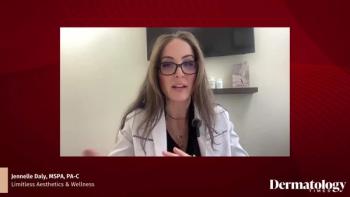
A Snapshot of the Correlation Between Acne, Social Media, and Mental Health
The American Acne and Rosacea Society brings attention to the negative emotional effects of acne.
June was Acne Awareness Month and the American Acne and Rosacea Society (AARS) used the opportunity to bring awareness to the detrimental effects of acne and acne scarring on quality of life for both men and women.1
Although acne affects approximately 85% of the US population, sufferers still report feeling embarrassed and experiencing physical discomfort. The stigma associated with acne can cause feelings of embarrassment and interfere with social activities and can begin as early as age 9, when some individuals begin showing symptoms.
The presence of acne is one of the first things people notice in interactions. When viewing photos, skin with acne was the first thing noticed by 76.1% of respondents as compared to 24.8% noticing skin first when the skin was clear.2
Among adults, those with acne report higher levels of anxiety and depression than those without acne. Research has also shown that the post-inflammatory hyperpigmentation caused by acne negatively impacts the quality of life of those individuals.
“There is no doubt that patients with acne may be impacted by the condition, no matter their age,” said Andrea Zaenglein, MD, president of the American Acne and Rosacea Society (AARS) in a press release. “Thankfully, we have access now to more treatments that ever before, and there are even more treatments in development to treat this common disease.”
Options include benzoyl peroxide, topical retinoids, and antibiotics, as well as oral antibiotics, isotretinoin, and energy-based devices. Management options for acne scarring and hyperpigmentation are also growing.
“It’s important for patients to know that we can help them achieve clear skin, even if they have not had treatment success in the past,” Zaenglein added. “Patients should see a dermatologist and be wary of non-medical sources of advice, like social media.” AARS urges individuals with acne to see a board-certified dermatologist who can help manage their acne.
For more information on the Acne and Rosacea Society, visit
Reference
- Acne experts address the impact of acne on affected individuals. News Release. American Acne and Rosacea Society. June 27, 2023. Accessed June 27, 2023.
- Loh KC, Chan LC, Phang LF. Perceptions and psychosocial judgement of patients with acne vulgaris. Med J Malaysia. 2020;75(1):18-23.
Newsletter
Like what you’re reading? Subscribe to Dermatology Times for weekly updates on therapies, innovations, and real-world practice tips.









